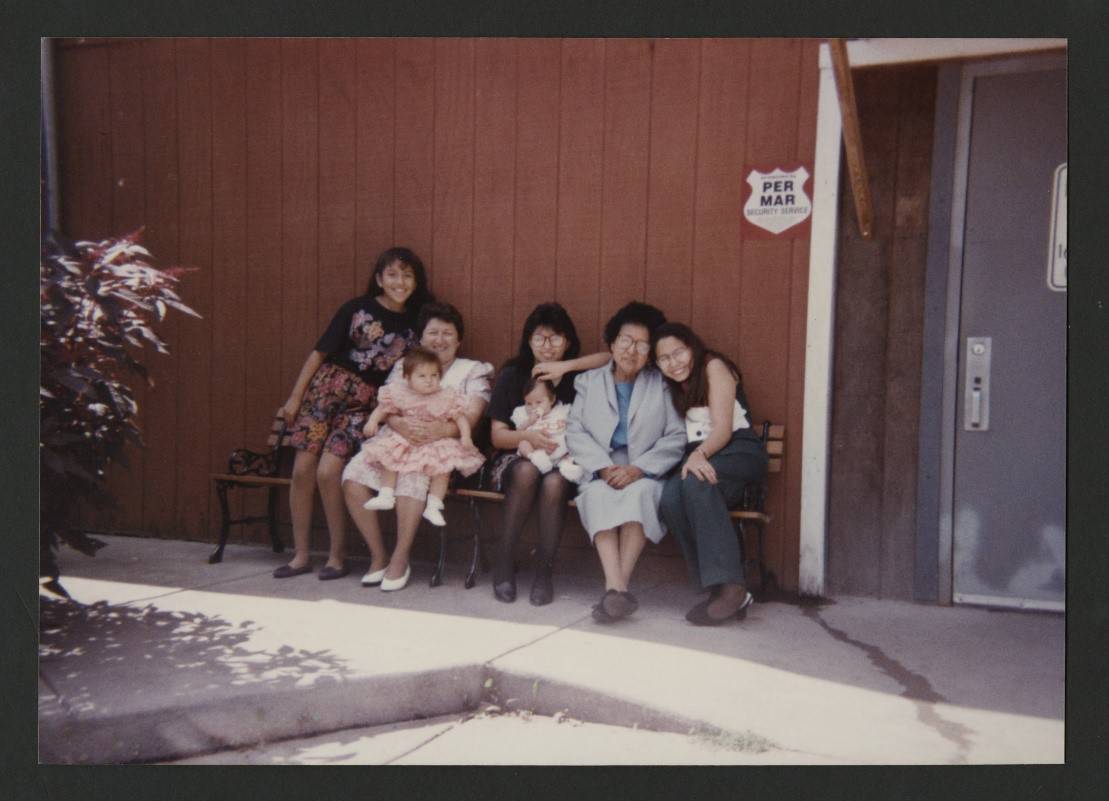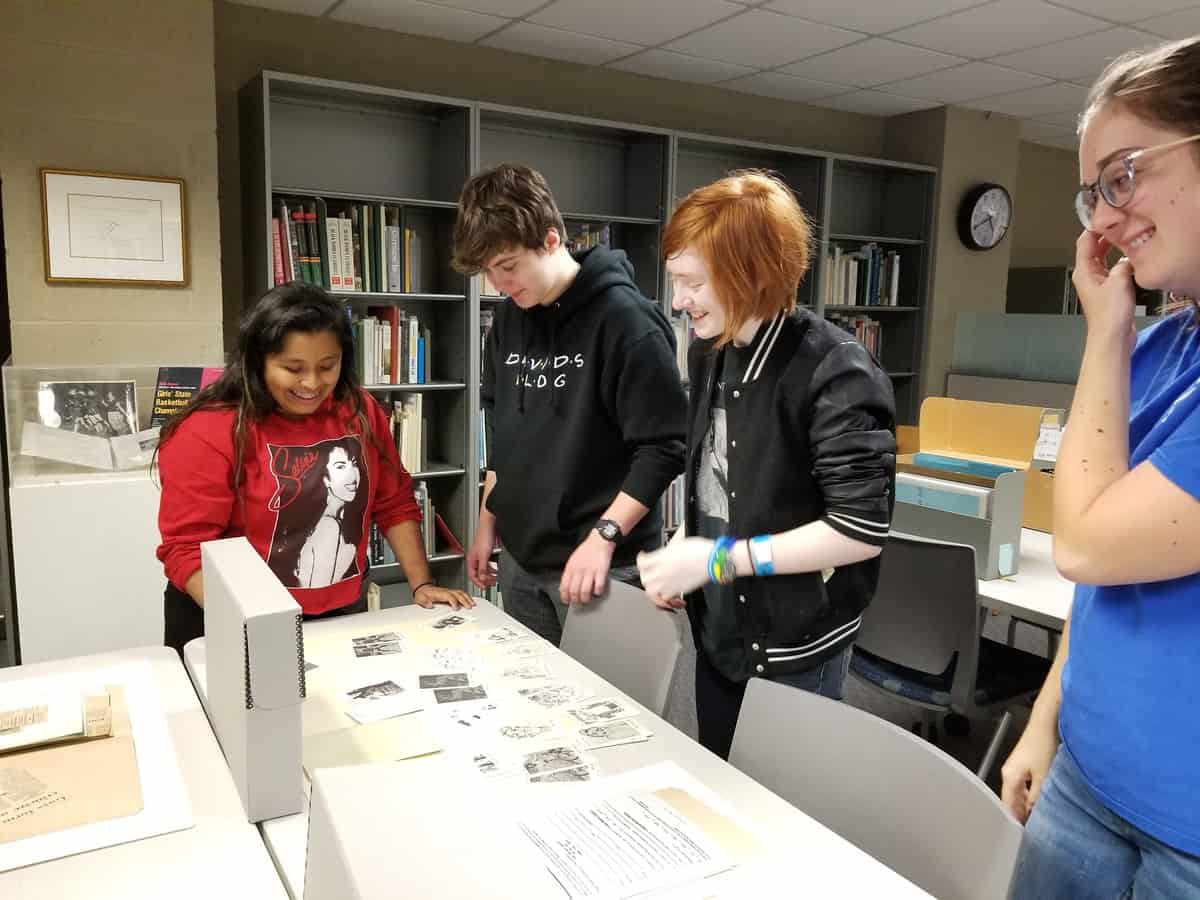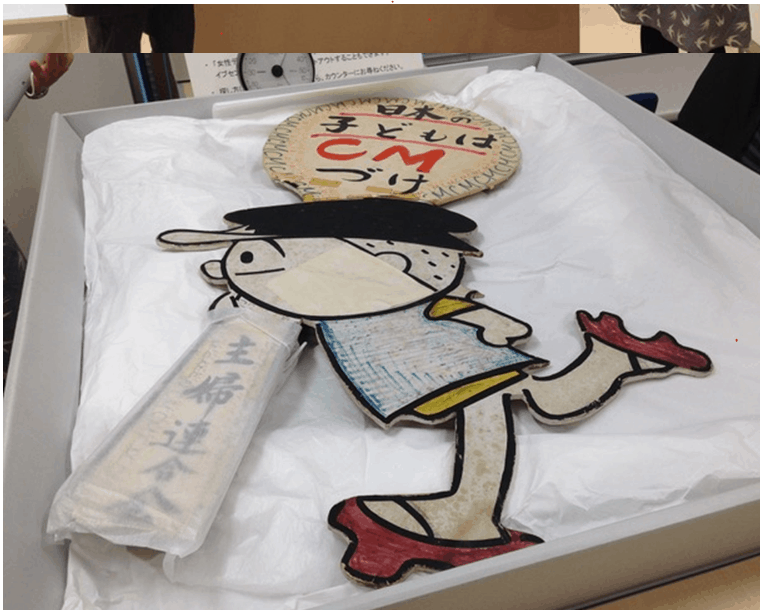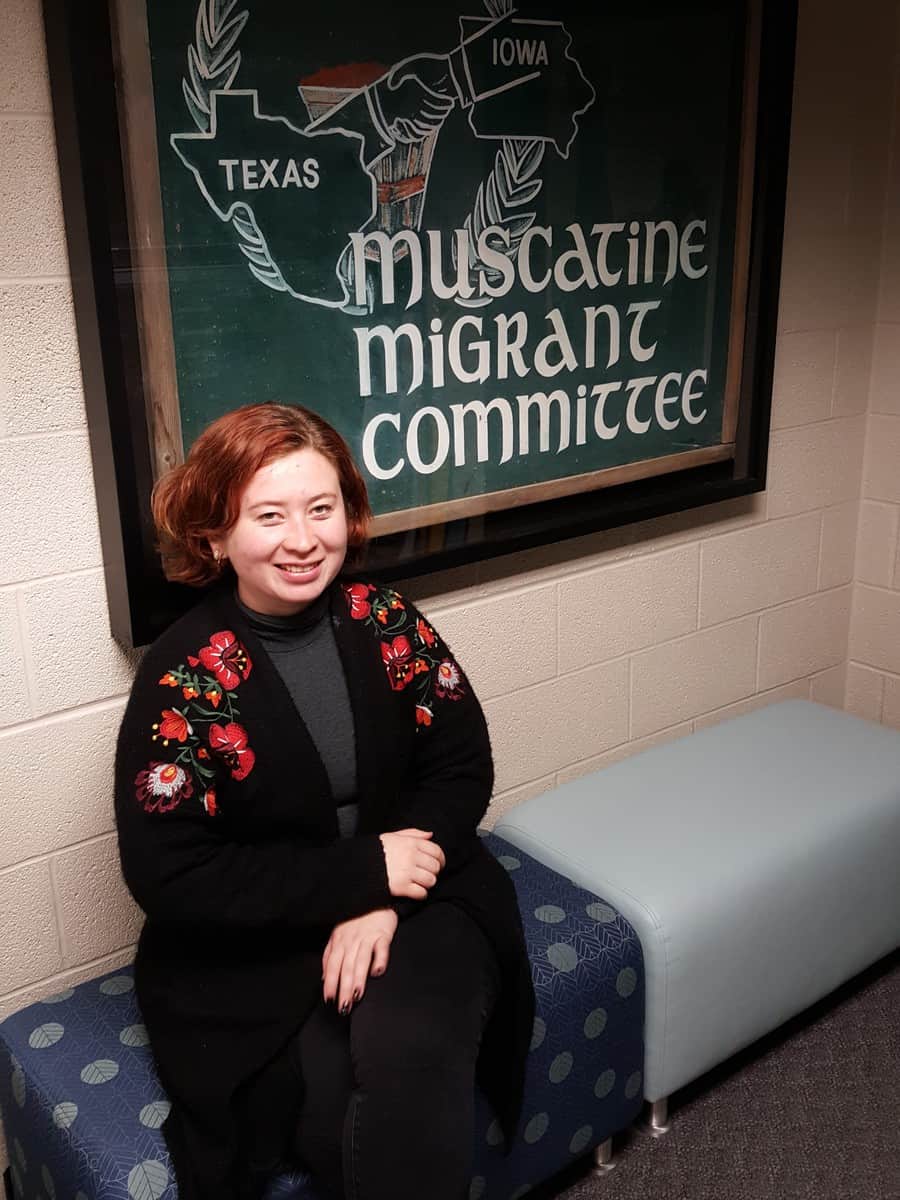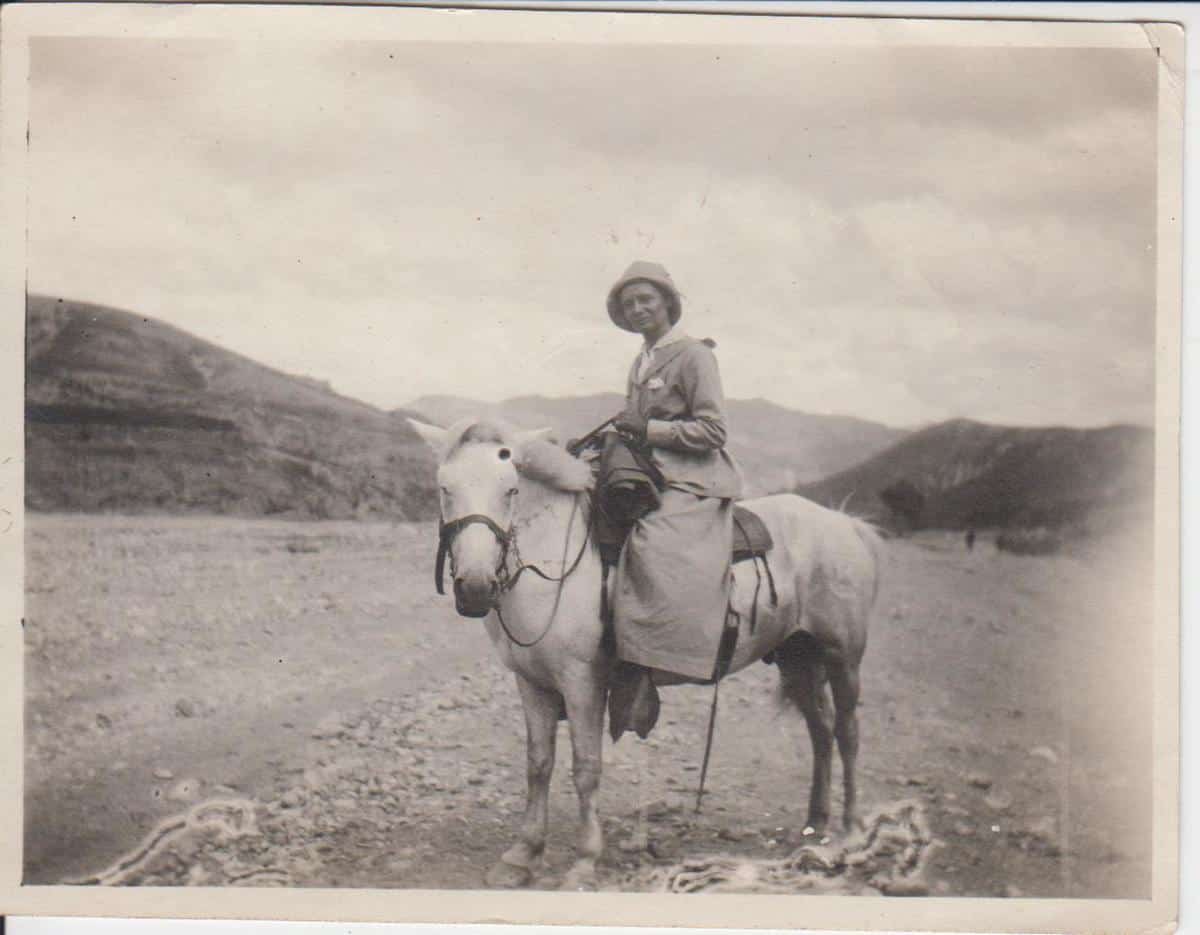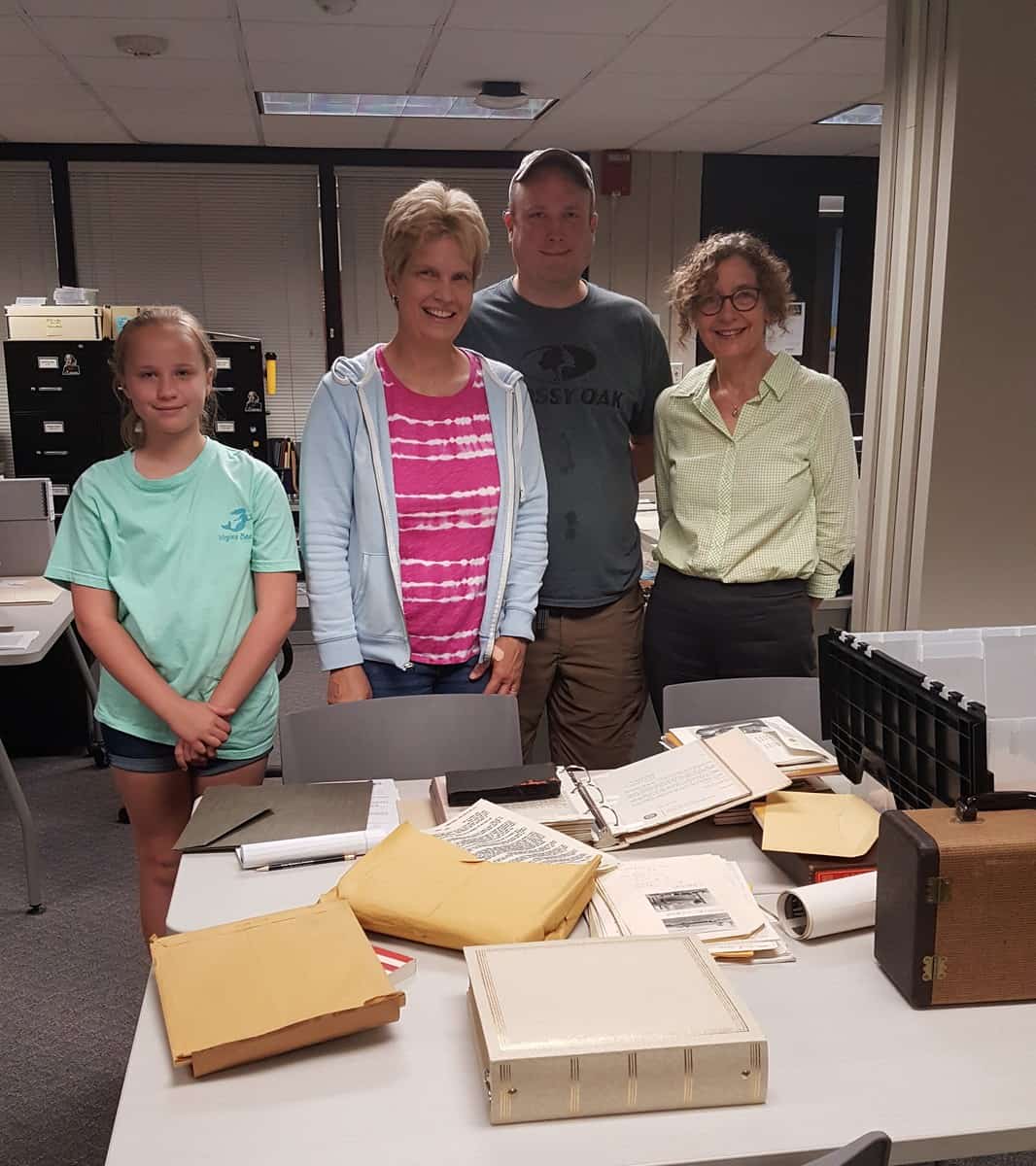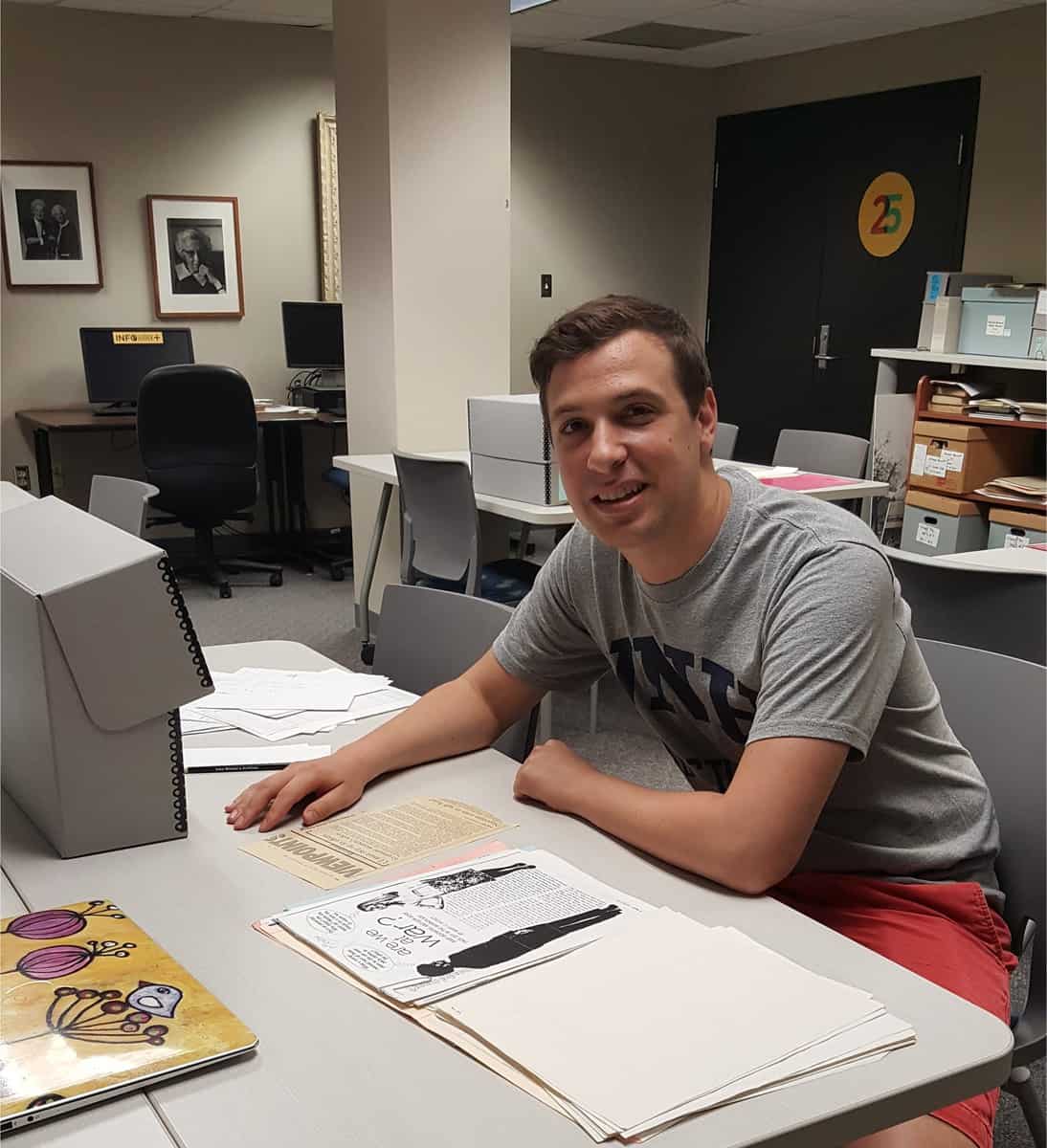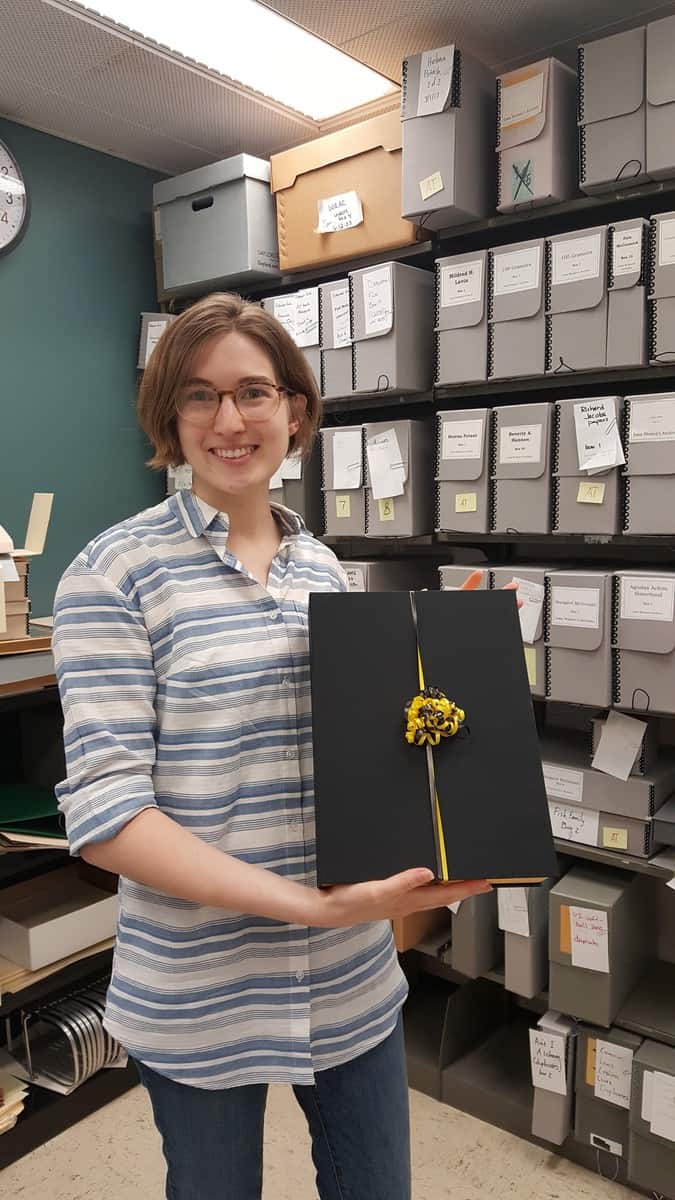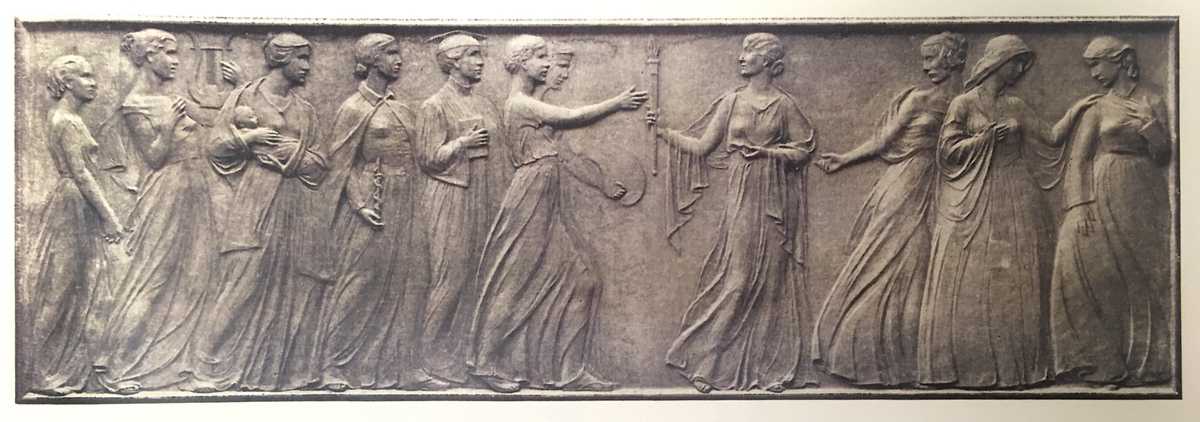Below is a reflection from Micaela Terronez, Olson Graduate Assistant, on a recent talk about her interest in the Mexican barrios of the Quad Cities at a local community gathering in Davenport, Iowa. She will be giving a version of this talk at “Workers’ Dream for an America that ‘Yet Must Be’ Struggles for Freedom and Dignity, Past andContinue reading “History Reflected Back: Part I”
Category Archives: People
Activists in the Archives: Connecting High School Students with Local LGBTQ History
Guest post by Dr. Heather Cooper, Visiting Assistant Professor in History and Gender, Women’s, and Sexuality Studies During LGBTQ History Month in October 2018, I worked with the Iowa Women’s Archives and University Special Collections to organize an archives visit for students from West Liberty High School. The several students who were able to attendContinue reading “Activists in the Archives: Connecting High School Students with Local LGBTQ History”
An Iowa Woman in Japan: Kären Mason’s Trip to Rikkyo University
Kären Mason, Iowa Women’s Archives curator, traveled to Tokyo in November to speak at Rikkyo University. Sixty library students, archivists, and others attended her lecture, entitled “Archives for All: Creating More Inclusive Archives in the United States.” Kären was invited by Ellen Hammond, former Japanese Studies librarian at Iowa and then at Yale, now livingContinue reading “An Iowa Woman in Japan: Kären Mason’s Trip to Rikkyo University”
Lupita Larios Travels through Time with Mujeres Latinas Oral Histories
Guest post by Lupita Larios Have you ever heard a story that your grandparents, for example, told you and you were so fascinated to hear the story that you still remember it? With oral histories, a person is able to travel through time and imagine all the events and experiences that the narrator was livingContinue reading “Lupita Larios Travels through Time with Mujeres Latinas Oral Histories”
Dr. Myrtle Hinkhouse: From China to the Iowa Women’s Archives
In 1916, a young doctor by the name of Myrtle Hinkhouse stepped onto a ship heading toward China. Years earlier, the Presbyterian Board of Foreign Missions appointed her to serve in Tengchoufu and, after studying at the Women’s Medical College in Philadelphia, she was ready to begin her work. Hinkhouse worked in China for threeContinue reading “Dr. Myrtle Hinkhouse: From China to the Iowa Women’s Archives”
Reflections of an IWA Student
Maritza Lopez- Campos joined the IWA student staff to work on the Mujeres Latinas Project. Since then she’s learned about processing, written finding aids, and been an invaluable member of the team at several 25th anniversary events. We’re all wishing her the best as she leaves the archives and begins her career in social work!Continue reading “Reflections of an IWA Student”
A Donation 46 Years in the Making!
In 1972, the University of Iowa’s Manuscript Librarian, Robert McCown, wrote a letter to Nora Leander. He hoped that she would donate the papers of her aunt, Esther Bacon, an Iowan and missionary to Liberia from 1941 – 1972. In 2018, Leander’s niece, Ann Prekker, found the letter among Bacon’s papers and decided to contactContinue reading “A Donation 46 Years in the Making!”
Our 2018 Travel Grant Recipient: Ezra Temko
Our 2018 Linda and Richard Kerber Fund travel grant recipient is Ezra Temko, a Sociology PhD candidate at the University of New Hampshire (UNH). The Linda and Richard Kerber Fund was established to help researchers travel to the Iowa Women’s Archives. Temko has come to Iowa City from the state of Delaware, where his researchContinue reading “Our 2018 Travel Grant Recipient: Ezra Temko”
New Staff in IWA
This week, Anna Tunnicliff joined the IWA staff as Processing Librarian. Tunnicliff earned her MLIS with a Certificate in Book Studies from the University of Iowa earlier this May. She has been a graduate research assistant at the Iowa Women’s Archives for the past three years and is very excited to continue working here inContinue reading “New Staff in IWA”
25 for 25: Iowa Suffrage Memorial Commission
It is in part thanks to the Iowa Suffrage Memorial Commission that the IWA has such a collection of materials on the suffrage movement in Iowa. The commission, incorporated in 1922, was organized “to commemorate the efforts of the Pioneer Suffragists and the long procession of workers who helped secure the final enfranchisement of women.”Continue reading “25 for 25: Iowa Suffrage Memorial Commission”
